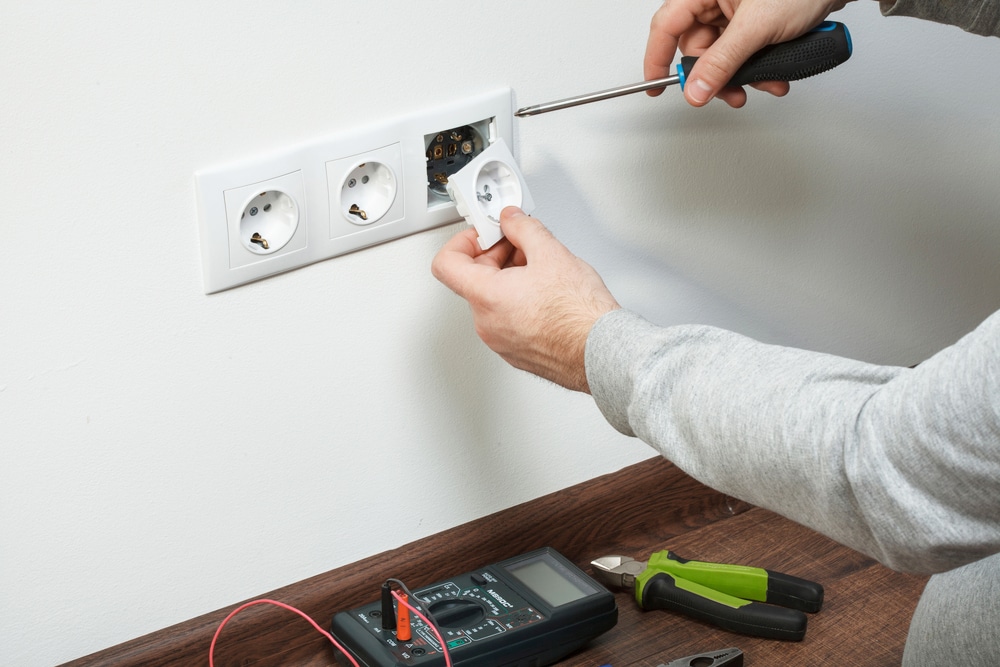Electrical overdose in any place can be annoying, mainly because it can lead to the power of a place going all out abruptly. It can be disturbing. This is why it is necessary to ensure that such overloads are prevented and reduced at all costs. Luckily, it is not that difficult to stave off such an event as there are some tips one can follow to ensure the same does not happen in the future and create a safer environment in one’s home.
An electrical overload mainly happens when too many appliances are attached to a circuit and when all of them are turned on or are used at the same time. This puts an increased load on the circuit and can lead to power outages altogether. If such an issue arises all of a sudden, it is advised for one to call an emergency electrician to look at the issue and look for ways to find the root cause of the problem so it can be fixed. Whereas, in general, it means that one should try to adopt methods that can prevent such an incident in the future. Following are the tips that can help one in averting electrical overloads in one’s house:
1. Add More Sockets And Outlets

Electrical overloads can be a result of one socket being used for more equipment than it can handle. It means that a socket that cannot hold more than 1,800 watts of power is used for equipment that requires more power or multiple appliances are attached to a single outlet. Such an arrangement can overburden the system.
This is why it is preferred to redistribute the overall sockets in a house and add more sockets for different devices based on the energy they consume and the overall load that would place on the circuit. Junction boxes are good places to look for options to extend the circuit and add new outlets.
2. Make Use Of Allocated Sockets For Certain Gadgets
Besides having the usual sockets which may be used for connecting multiple devices, it is also advisable to have dedicated sockets for appliances that are used often and require a considerable amount of energy to run. Dedicated sockets can be used for devices and appliances that would require more than 1,000 watts to run. This includes appliances like hot tubs, air conditioners, dishwashers, etc. Such an arrangement would allow for a more stable flow of electricity in the circuit and will help measure the average load on the circuit to prevent any overload when different devices are run all at once.
3. Get Professional Electrical Help In Rewiring The House

Although it might seem easy to rewire a house to ensure proper transfer of electricity, it is not always the best option to do it oneself. It is because not everyone is comfortable dealing with circuits, mainly bigger ones like that of a house. It is more apparent in older homes where the wiring might be outdated and not suited for modern appliance usage. This is where electricians come into the picture. The electrician will ensure that the circuit is fixed or replaced in such a manner as to allow the proper functioning of all the appliances attached to it. This is one of the costlier tips but can lead to benefits in the long run as it would considerably reduce the chances of having any form of electrical overload in the house.
4. Look For Energy-Saving And Energy-Efficient Appliances
If there are frequent outages due to electrical overload in one’s house, especially when the more power-consuming appliances like the air conditioner and dishwasher are turned on and used simultaneously, then it is a good choice to look for more energy-efficient appliances to replace the older ones.
These energy-saving equipment are a bit more expensive but one can look to get them if one has the budget for it as they are a great investment. Even though their upfront cost is high, they can prove helpful in the long run by reducing the electricity bill cost. Besides this, they are considerably lighter on the electric circuit of the house and can prevent the usual electrical overload. It will allow one to use multiple appliances at once, without having the fear of overloading the system.
5. Regularly Check All The Appliances And Wires

Besides following the above steps to prevent an electrical overload, it is also necessary to keep a regular check on all the appliances attached to the circuit or used frequently. A check of the overall wiring of the circuit should also be done from time to time. The appliances should be checked to see if they have any damage. Such damage can either be in their wires, like the wearing out of the outer insulation and exposing of the inner copper wire, etc., or the body of the equipment.
This regular check can be done by oneself. One can also get it checked by an electrician. Doing this will ensure that the appliances are in a good condition and reduce the possibility of an overload since as soon as a damaged wire or equipment is found, it can be replaced or repaired at once.
Conclusion
To get a sense of safety while living in a house, one needs to ensure that the electrical system of the house is suitable to accommodate all their electrical needs while also being safe. This is why it becomes important to take measures to prevent any form of electrical overload that can eventually lead to spontaneous power outage even when the load on the circuit is minimal. One can take personal measures to avoid such an overload like regularly checking their equipment and wires, adding sockets when needed and using appropriate sockets for a particular appliance. Moreover, attention should be placed on using energy-saving appliances as they are better for the overall electrical system of the house.
The post 5 Tips For Preventing Electrical Overloads In Your House appeared first on The Event Chronicle.